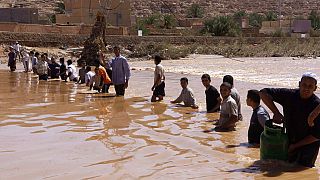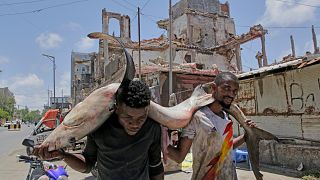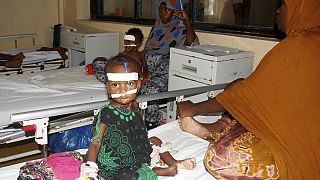Somalia
Thousands of people have been forced to flee their homes in central Somalia after the River Shabelle burst its banks in Beledweyne.
Heavy rain has led to flooding in the area, causing damage to towns and villages and the UN's humanitarian response agency (OCHA) warned of an increase in diseases such as cholera as local infrastructures are affected
Local resident, Abdihafid Mohamed Yusuf, shared his experience:
"We fled from the flash floods that submerged the city like so many others," he said.
"People ran out of the city to safety. For four days, the floods poured massively into the city."
Shopkeeper, Nur Abdulle Hassan, added that the heavy rains had impacted on trade.
"Our businesses have been badly affected by the massive flooding in Beledweyne and the movement of people. This has resulted in a reduction in the presence of our customers."
The flooding comes as international figures show a record number of internally displaced people worldwide with natural disasters accounting for 32.6 million such movements last year.
Deputy Governor of the Hiran Region, Hassan Ibrahim Abdulle, said almost the entire population of some regions have had to move out.
"Most of the inhabitants of the four districts of the town of Beledweyne are displaced because of the flash floods," he explained.
"90 per cent of the local towns have fled. 10 per cent are still in the town because they have been stranded or they live in the highlands."
The flooding comes in sharp contrast to months of drought which has killed tens of thousands of people and wiped out crops and livestock.
It is feared the rains could force many families into destitution.











01:22
World will have to learn to live with heatwaves, UN says
01:39
Sustainable development financing conference opens in Seville
00:56
South Africa: At least 101 dead in Eastern Cape floods as rescue efforts continue
01:35
UN and Haitian officials mark one year since Kenyan police arrived to support security efforts
01:42
Gaza residents welcome rare organized aid delivery after months of chaos and hunger
01:50
UN urges renewed political and climate action in Libya amid humanitarian and governance crises